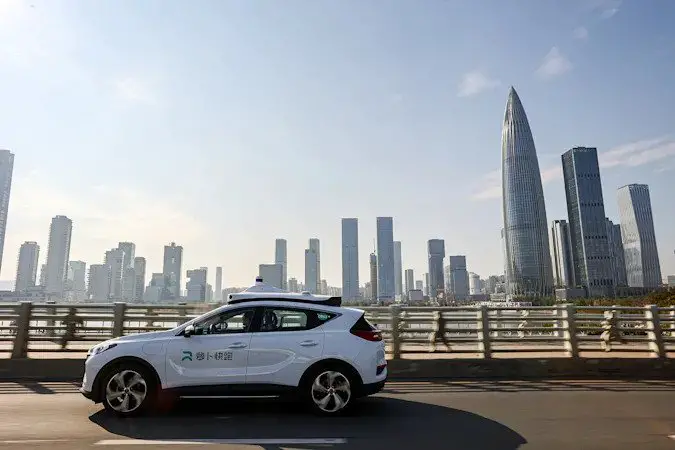Chinese company Baidu’s Apollo project has landed self-driving cars in Shenzhen, one of the most populated regions in China. The latest expedition marks its seventh city expansion for its robotaxis following the launch in Beijing, Shanghai, Cangzhou, etc., and plans for more expansion.
The company launched its new batch of robotaxis in Shenzhen’s Nashan District which is home to giant tech firms including Huawei, and Tencent. It is one of the most populated areas in South China with 13 million people.
Baidu says its robotaxis’ recent expansions will fuel the development in the autonomous cars industry also reflecting the company’s own efforts to lead the race of “intelligent transportation” in China.
The commuters can book their rides through the Apollo Go app. The self-driving cars in Shenzhen will serve from 50 stations. The ride will center on key downtown areas in the district. Users of the app could hail the service from almost 50 stations and expect continuous service from 9 am to 5 pm.
Baidu has announced it is setting up 300 stations at the end of 2022 to meet the daily commuting needs of 13 million Shenzhen residents.
Also read: Yatri Project 0 Bike Launched; Find Price and Features
Baidu Apollo is the pioneer of China’s autonomous driving field and offers industry-leading technology for robotaxis. Besides this, Apollo Go is also providing paid service for trials of commercial deployment such vehicles in Beijing.
So far autonomous cars have plied in 7 cities. Baidu aims at increasing the number to 65 cities by 2025 and 100 cities by 2030 in China.
Baidu has been working on self-driving cars since 2017 and has become one of the world’s top 10 developers of self-driving cars with 10 million test miles so far. It believes, in the future, these cars will be able to move communicate and learn with AI.
These cars are equipped with external sensors to navigate through the streets and in case of a mishap, operated remotely by an operator on 5G network.
Check out: Best Electric Cars Price in Nepal Latest Update
Self-driving cars could become a much-sought feature in smart cities in not-so-long years to come. How do you think it will impact our transport behavior? Do offer your inputs in the comments below.



